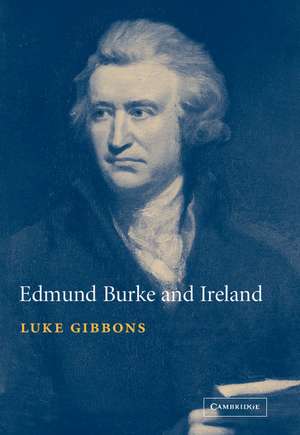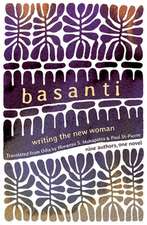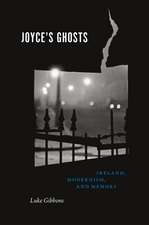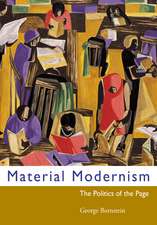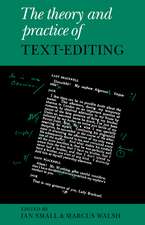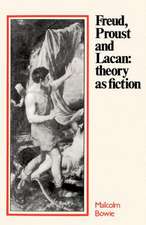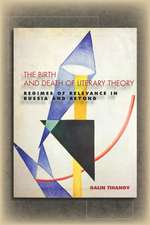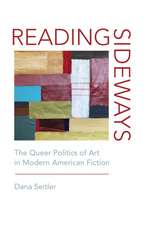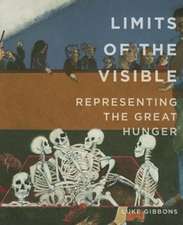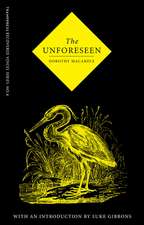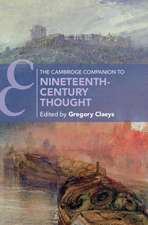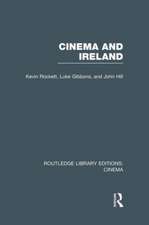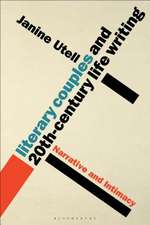Edmund Burke and Ireland: Aesthetics, Politics and the Colonial Sublime
Autor Luke Gibbonsen Limba Engleză Paperback – 4 feb 2009
| Toate formatele și edițiile | Preț | Express |
|---|---|---|
| Paperback (1) | 351.35 lei 6-8 săpt. | |
| Cambridge University Press – 4 feb 2009 | 351.35 lei 6-8 săpt. | |
| Hardback (1) | 698.68 lei 6-8 săpt. | |
| Cambridge University Press – 15 oct 2003 | 698.68 lei 6-8 săpt. |
Preț: 351.35 lei
Nou
Puncte Express: 527
Preț estimativ în valută:
67.23€ • 70.52$ • 55.97£
67.23€ • 70.52$ • 55.97£
Carte tipărită la comandă
Livrare economică 01-15 aprilie
Preluare comenzi: 021 569.72.76
Specificații
ISBN-13: 9780521100946
ISBN-10: 0521100941
Pagini: 320
Ilustrații: 14 b/w illus.
Dimensiuni: 152 x 229 x 18 mm
Greutate: 0.47 kg
Editura: Cambridge University Press
Colecția Cambridge University Press
Locul publicării:Cambridge, United Kingdom
ISBN-10: 0521100941
Pagini: 320
Ilustrații: 14 b/w illus.
Dimensiuni: 152 x 229 x 18 mm
Greutate: 0.47 kg
Editura: Cambridge University Press
Colecția Cambridge University Press
Locul publicării:Cambridge, United Kingdom
Cuprins
Introduction: Edmund Burke and the colonial sublime; Part I. The Politics of Pain: 1. 'This King of Terrors'; Edmund Burke and the aesthetics of executions; 2. Philoctetes and colonial Ireland: the wounded body as national narrative; Part II. Sympathy and the Sublime; 3. The sympathetic sublime: Edmund Burke, Adam Smith and the politics of pain; 4. Did Edmund Burke cause the great Famine? Political economy and colonialism; Part III. Colonialism and Enlightenment: 5. 'Tranquillity tinged with terror': the sublime and agrarian insurgency; 6. Burke and colonialism: the enlightenment and cultural diversity; Part IV. Progress and Primitivism: 7. 'Subtilised into savages': Burke, progress and primitivism; 8. 'The return of the native': The United Irishmen, culture and colonialism.
Recenzii
Review of the hardback: '… dazzling investigation of the Irish roots of Burke's thought which ranged from ideas of terror and the sublime to the wounded body and the Great Famine. An intellectual feast.' Terry Eagleton, Irish Times
Review of the hardback: 'This new book on Burke, by Luke Gibbons of Notre Dame University, goes a long way towards resolving the apparent contradictions in Burke's life and towards reconciling the ambiguities in his legacy … a bracing read, and a signal achievement.' Thomas Bartlett, Irish Times
Review of the hardback: '… this dynamic pioneering account of Burk's thought puts him among the best. Where Gibbons surpasses all pre-existing studies of Burke is in his broad coverage of eighteenth-century ideas of sympathy, the sublime and aesthetics, which does justice to Burke's stature as an intellectual.' The Times Literary Supplement
Review of the hardback: 'This new book on Burke, by Luke Gibbons of Notre Dame University, goes a long way towards resolving the apparent contradictions in Burke's life and towards reconciling the ambiguities in his legacy … a bracing read, and a signal achievement.' Thomas Bartlett, Irish Times
Review of the hardback: '… this dynamic pioneering account of Burk's thought puts him among the best. Where Gibbons surpasses all pre-existing studies of Burke is in his broad coverage of eighteenth-century ideas of sympathy, the sublime and aesthetics, which does justice to Burke's stature as an intellectual.' The Times Literary Supplement
Notă biografică
Descriere
This study argues that Burke's influential early writings on aesthetics are intimately connected to his politics.
